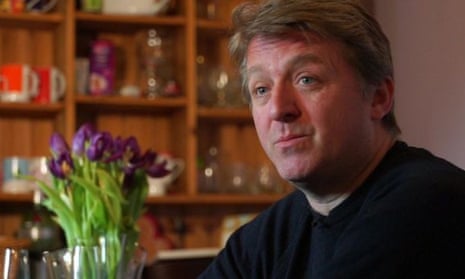The Royal Opera House has lost its challenge to a landmark ruling in the case of a viola player whose hearing was irreparably damaged by noise levels in the orchestra pit while rehearsing Wagner’s Ring Cycle.
Three court of appeal judges on Wednesday unanimously ruled in favour of Christopher Goldscheider who suffered suffered “acoustic shock” in September 2012.
The musician had been sitting directly in front of the trumpets in the Royal Opera orchestra’s 18-strong brass section when he was exposed to what were deemed unacceptable noise levels.
The 45-year-old from Biggleswade, Bedfordshire is no longer able to play in an orchestra and cannot look for alternative work. He and his family have moved to the country to avoid noises that trigger pain, nausea and dizziness.
In his evidence Goldscheider stated he was now “unable to bear being around noise”.
Goldscheider won his case a year ago but the ROH, supported by the Association of British Orchestras, the Society of London Theatre and the UK Theatre Association, took it to appeal. They argued it could have “disturbing implications” for all live music performance.
Lawyers for the ROH said the original ruling failed to distinguish between the industrial noise of a factory and “one of the greatest artistic institutions in the world, for whom ‘noise’ was a product”.
The ROH and its supporters said that “all music-making in the UK” might have to be curtailed because of the ruling.
But Sir Brian Leveson, sitting with Lord Justice Bean and Lord Justice McCombe, rejected this, saying: “For my part, I simply do not accept that this cataclysmic scenario represents a proper understanding of the consequences of this decision.”
He said Goldscheider’s injuries were “all foreseeable and reasonably preventable”, adding: “What the case does underline is the obligation placed on venues to comply with the requirements of the legislation.”
He said: “The national and international reputation of the ROH is not and should not be affected by this judgment.”
The judges backed the ROH in its contention that the wearing of ear defenders at all times by players during rehearsals and performances was not practicable.
Alex Beard, the chief executive of the ROH, said the company was pleased that point had been accepted.
He said: “The original high court ruling, which stipulated that hearing protection must be worn by orchestral musicians at all times, was widely acknowledged by the live-music and theatre industries as completely impractical with potentially devastating and far-reaching consequences for the entire sector, and we are pleased that this unworkable solution has been overturned.
“We are, however, disappointed by other aspects of the appeal court’s ruling and will work closely with our insurers and legal team to explore our next steps.”
In March last year, Mrs Justice Nicola Davies ruled in Goldscheider’s favour on the issues of breach of duty and causation of injury. She found there was a “clear factual and causal link” between the identified breaches of the regulations and the high level of noise at the rehearsal.
Damages have yet to be assessed. During the earlier trial, lawyers said Goldscheider’s lost earnings alone amounted to £750,000.
